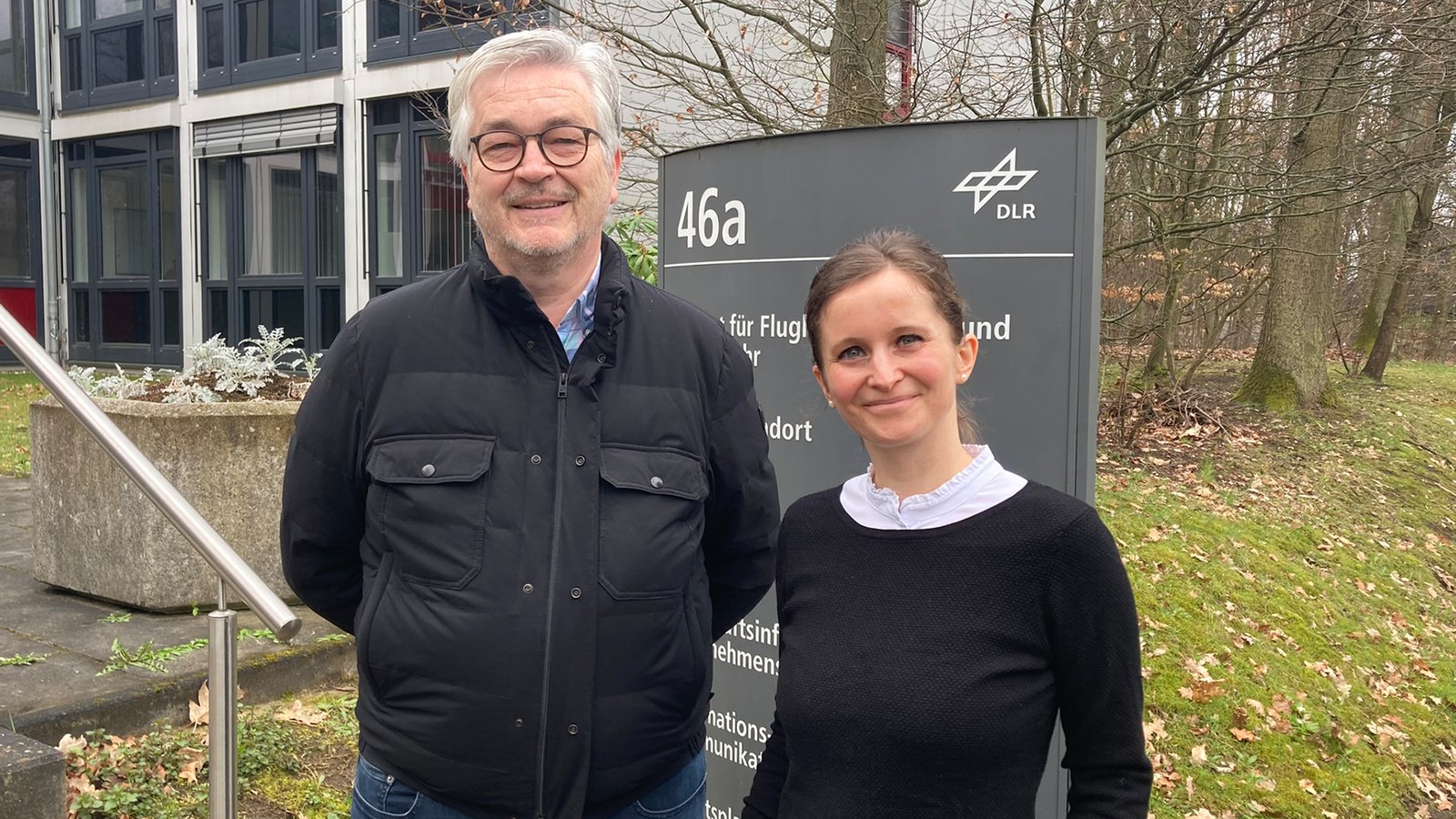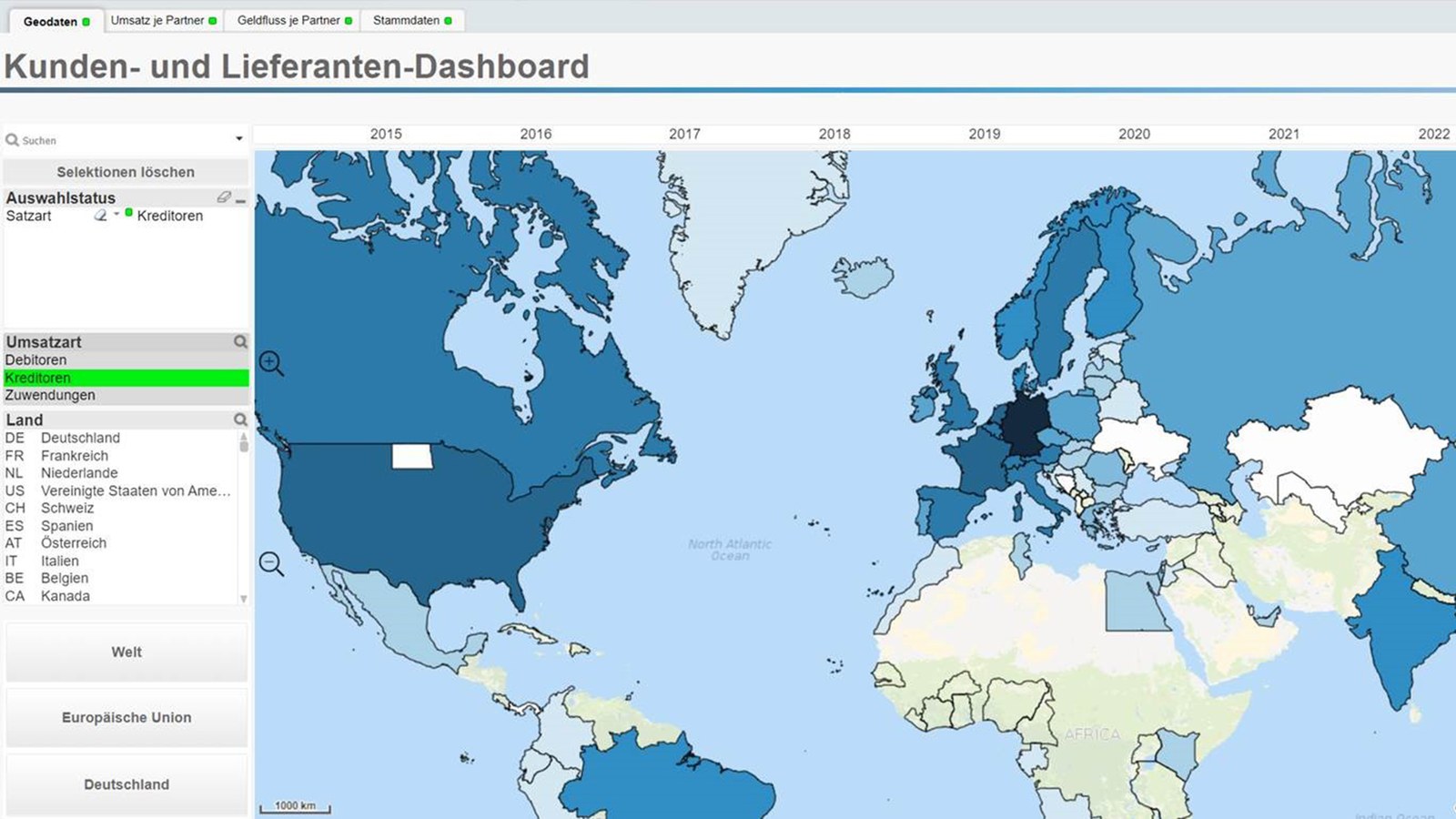In the service of human rights

Harald Schneider is the Human Rights Officer at DLR and Catherine Sinner is a Human Rights Expert. These are two official functions that you probably would not expect to find in a German research institution. Fair wages, occupational health and safety for all employees, workers’ councils and, of course, neither child nor forced labour - for DLR this is all a matter of course. And yet, DLR works with around 10,000 suppliers. Every day, thousands of products and services are ordered so that the scientists can, for example, launch experiments on rockets, develop robots, operate solar towers or research the vehicles of the future. And things might be different for these suppliers. “Since 1 January 2023, the Supply Chain Duty of Care Act has been in place, and as a publicly funded institution, we see ourselves as having a responsibility,” says Schneider. The Act on Corporate Due Diligence Obligations in Supply Chains stipulates that companies must keep an eye on the entire supply chain - from raw materials to finished products - and ensure that human rights are respected.
Identifying risks and developing responses
DLR is not actually the main focus of the German government’s supply chain law, says Schneider. There would be others, such as cheap textile trade chains, where child labour and poor working and environmental conditions do occur in the global supply chain. But even in a German research institution, there could theoretically be something wrong in all sorts of places. Does the fish that ends up on the plate in the canteen really not come from illegal fishing? Or does the office furniture come from illegal logging? And if the foyer is furnished with marble – does the material perhaps come from an Indian quarry where children work? None of this has happened yet, but Harald Schneider and Catherine Sinner will introduce risk management for the future – together with departments such as Purchasing, Export Control and Construction Management – develop appropriate preventive measures, adapt contract conditions and special cancellation rights, introduce control mechanisms and design training courses.
From paper clips to large-scale research facilities
“This is a complex matter for an institution like DLR,” explains Sinner. “To begin with, the challenge was: where do you even start?” The Federal Office for Economic Affairs and Export Control (Bundesamt für Wirtschaft und Ausfuhrkontrolle; BAFA) supports companies with guidance to help with the implementation of the Supply Chain Act. Consideration is to be given to the prohibition of child labour, protection against slavery and forced labour, freedom from discrimination, occupational health and safety, the right to organise workers’ representation and the payment of reasonable wages. Risks to the environment are also included among the human rights violations. This is to be ensured for all products and services – and at DLR these range from simple paper clips to large-scale research facilities.
Making the world of work more humane

One of the first tasks for the two people responsible for human rights compliance is to set down the necessary principles in a declaration, to integrate them into DLR’s strategy and, ultimately, to establish a kind of traffic light system via software that makes it easy to choose the right suppliers in ordering processes or to make the decision to look for alternative suppliers. Risks are to be analysed and reviewed on a regular basis. “In doing so, we must always keep an eye on what is happening in the world at any given moment,” emphasises Sinner. Since the Ukraine war, for example, DLR has suspended business relations with Russia. A dashboard with all suppliers already provides information at DLR about where each supplier is located and what their turnover with DLR has been. If the global political situation changes, it is possible to react quickly and discontinue or resume business relations.
However, it is very important to maintain a correct and appropriate perspective: “We may only have a small turnover with a supplier, but we may be one of their largest customers,” says Sinner. “And then our obligation is particularly great, because we can also make the most difference there if we pay attention to human rights compliance in the supply chain.” Harald Schneider adds: “These are the first, necessary steps towards taking a more global view of the world of work and making it more humane for everyone.”
